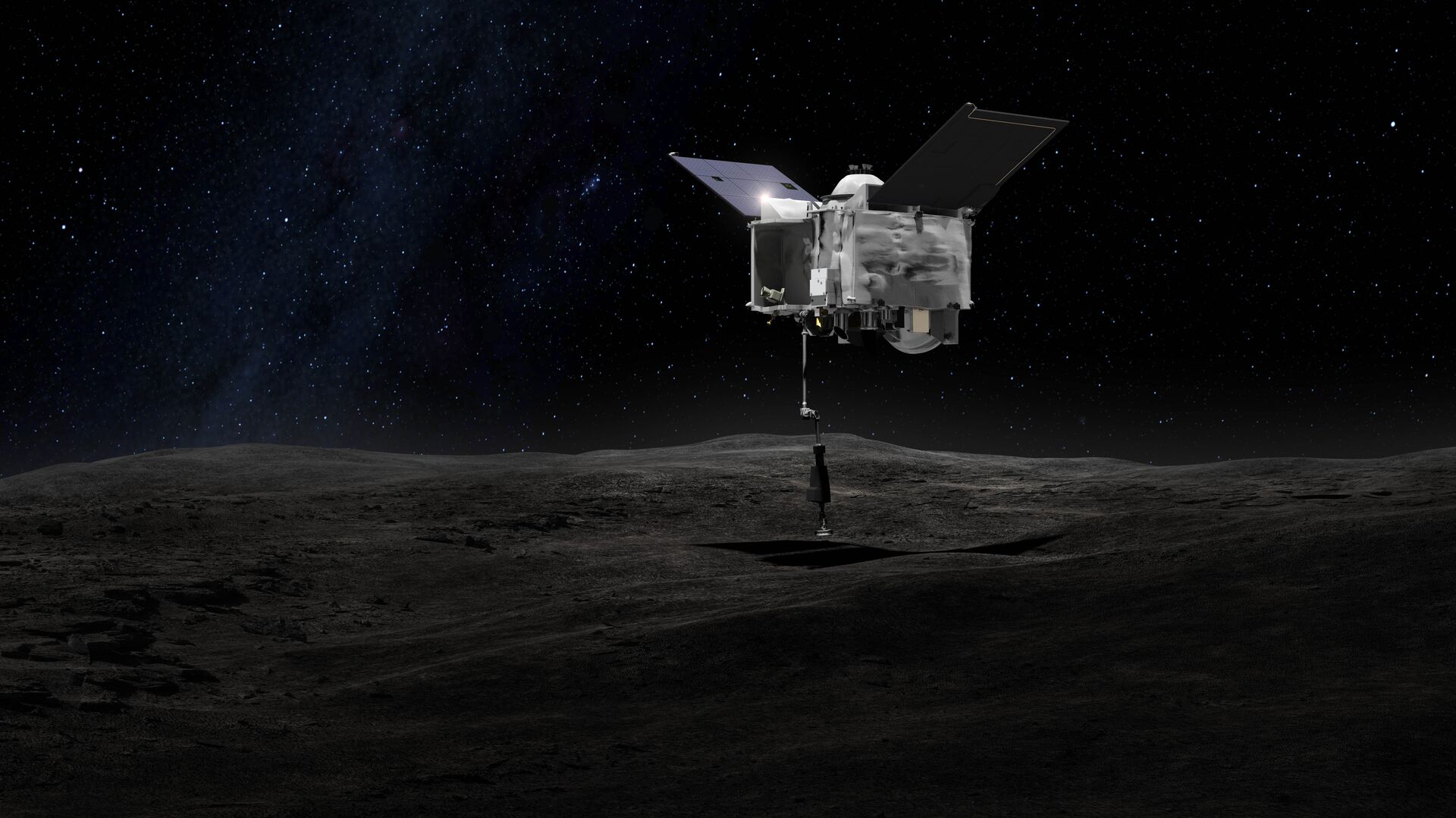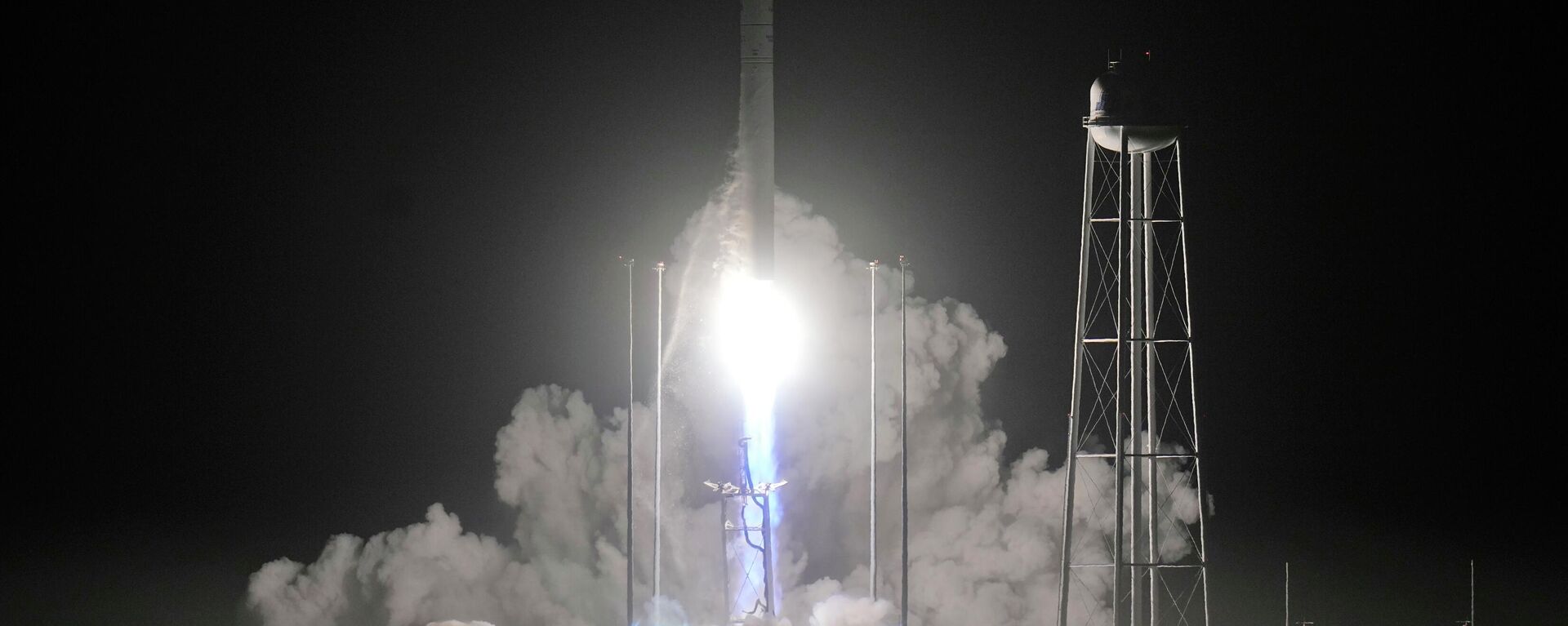https://en.sputniknews.africa/20230924/1062320977.html
Ancient & Dangerous: NASA Hopes to Examine Bennu Asteroid Sample
Ancient & Dangerous: NASA Hopes to Examine Bennu Asteroid Sample
Sputnik Africa
Launched in 2016, the Osiris-Rex mission arrived at asteroid Bennu on Dec. 3, 2018. The asteroid is an antiquity from the Solar System's early days and has... 24.09.2023, Sputnik Africa
2023-09-24T15:49+0200
2023-09-24T15:49+0200
2023-09-24T15:50+0200
earth
nasa
space
space exploration
spacecraft
international
https://cdn1.img.sputniknews.africa/img/07e7/09/18/1062321177_1666:0:8333:3750_1920x0_80_0_0_56ed48a1f6528c4c054b996183a6dbe1.jpg
NASA's Osiris-Rex mission will return to Earth on September 24, bringing particles from Bennu – an asteroid believed to be one of most dangerous rocks in outer space. Experts hope to study the samples as soon as possible and shed some light on the formation of the planets and maybe even offer insights into the start of biological life on Earth. Scientists believe they will learn a bit more about the Earth's geological history. However, there is a risk that the capsule with the pieces of the asteroid will burn to ashes in the atmosphere.Scientists describe such celestial bodies as "building blocks for the planets" since they were around for billions of years and could have preserved the materials that participated in the formation of the Earth.The Osiris-Rex mission started in 2016 – the spacecraft had to reach the 500m-wide rock and observe it for several years before making any effort to seize surface materials.The safe return home is another challenge. Entering the atmosphere would be a tricky moment since the container with the particles of Bennu will heat up to 3,000C due to the friction with air. It is going to be a fiery descent – and that is why NASA experts are nervous.The asteroid's descent through the atmosphere will last for approximately 13 thrilling minutes.The previous event – the effort to obtain samples of the solar wind with the help of the Genesis capsule – was not successful. The parachute never opened and the data was effectively destroyed.The Bennu asteroid is considered potentially hazardous since there is a slight chance that it will impact with Earth between the years 2175 and 2199, causing a serious explosion that will not be enough for mass extinction, but will devastate areas "tens of miles away from the epicenter."
https://en.sputniknews.africa/20221108/1058609129.html
earth
space
Sputnik Africa
feedback@sputniknews.com
+74956456601
MIA „Rossiya Segodnya“
2023
News
en_EN
Sputnik Africa
feedback@sputniknews.com
+74956456601
MIA „Rossiya Segodnya“
Sputnik Africa
feedback@sputniknews.com
+74956456601
MIA „Rossiya Segodnya“
earth, nasa, space, space exploration, spacecraft, international
earth, nasa, space, space exploration, spacecraft, international
Ancient & Dangerous: NASA Hopes to Examine Bennu Asteroid Sample
15:49 24.09.2023 (Updated: 15:50 24.09.2023) Launched in 2016, the Osiris-Rex mission arrived at asteroid Bennu on Dec. 3, 2018. The asteroid is an antiquity from the Solar System's early days and has seen more than 4.5 billion years of history. According to scientists, Bennu's present-day composition was established within 10 million years of our system's formation.
NASA's Osiris-Rex mission will return to Earth on September 24, bringing particles from Bennu – an asteroid believed to be one of most dangerous rocks in outer space.
Experts hope to study the samples as soon as possible and shed some light on the formation of the planets and maybe even offer insights into the start of biological life on Earth.
Scientists believe they will learn a bit more about the Earth's geological history. However, there is a risk that the capsule with the pieces of the asteroid will burn to ashes in the atmosphere.
Scientists describe such celestial bodies as "building blocks for the planets" since they were around for billions of years and could have preserved the materials that participated in the
formation of the Earth.
The Osiris-Rex mission started in 2016 – the spacecraft had to reach the 500m-wide rock and
observe it for several years before making any effort to seize surface materials.
The safe return home is another challenge. Entering the atmosphere would be a tricky moment since the container with the particles of Bennu will heat up to 3,000C due to the friction with air. It is going to be a fiery descent – and that is why
NASA experts are nervous.
The asteroid's descent through the atmosphere will last for approximately 13 thrilling minutes.
The previous event – the effort to obtain samples of the solar wind with the help of the Genesis capsule – was not successful. The parachute never opened and the data was effectively destroyed.
The Bennu asteroid is considered potentially hazardous since there is a slight chance that it will impact with Earth between the years 2175 and 2199, causing a serious explosion that will not be enough for mass extinction, but will devastate areas "
tens of miles away from the epicenter."


